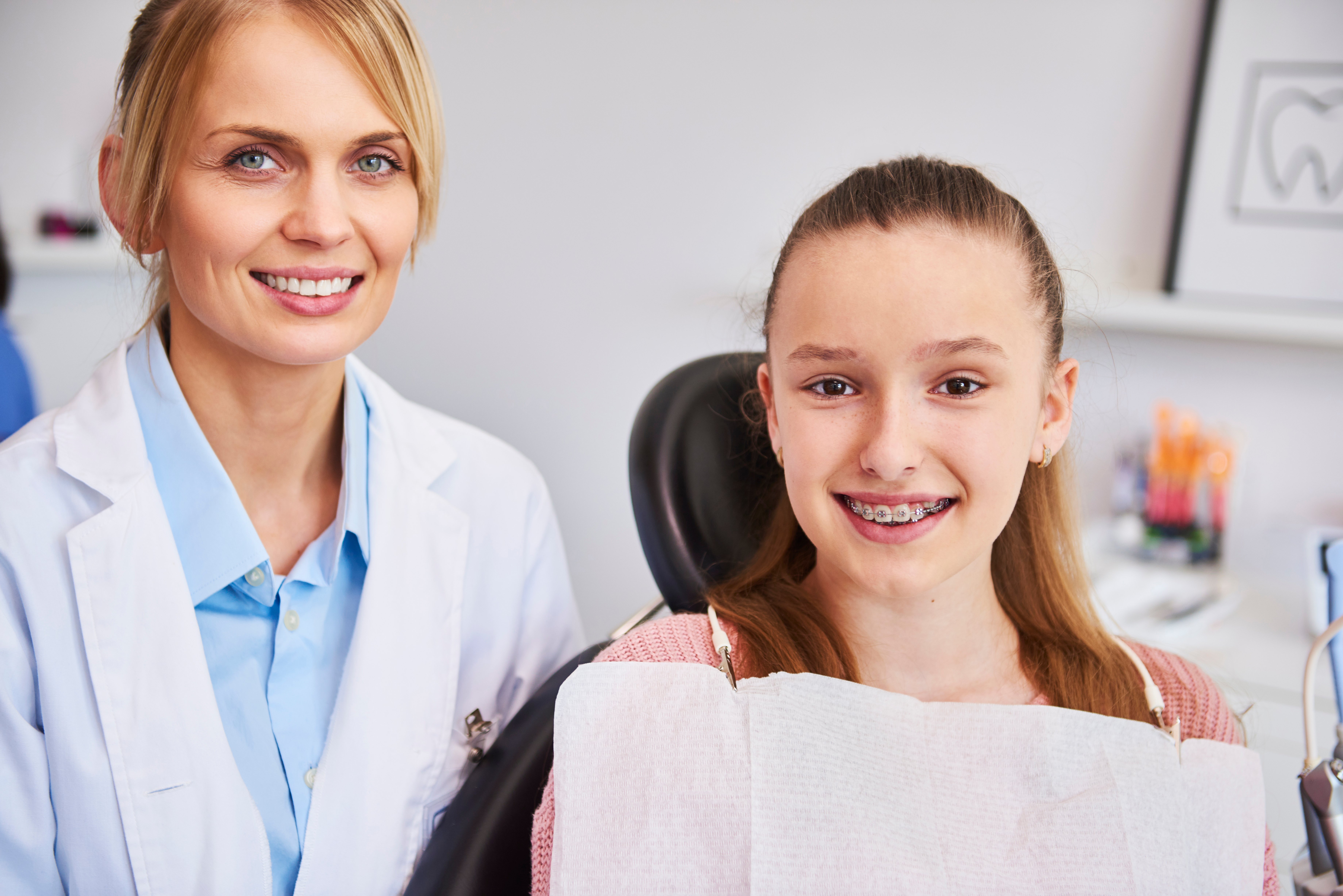Keeping Your Patients’ Smiles Healthy During Orthodontic Treatment

Having straight teeth is important for many patients for aesthetic reasons – everyone wants a perfect Hollywood smile – but dental professionals know that there are more benefits to properly aligned teeth than just appearance. Straight teeth make it easier for patients to clean their teeth, help them chew more easily, prevent jaw pain, reduce wear and risk for dental injury, and much more. It’s no wonder many parents decide to proceed with orthodontic treatment for their tweens and teens as soon as it’s recommended by their doctor. It isn’t uncommon to see braces and aligners on adults too; however, with younger patients, it’s especially crucial to stress the importance of maintaining a proper diet and oral hygiene as their habits are still forming. Teens and tweens love sticky and sugary snacks and drinks, and it might be harder for them to say no when offered soda or popcorn by a friend than it would be for an adult. Grown patients will typically exhibit more proactive behavior but it is always a good idea to remind them that they need to keep good oral hygiene to prevent dental and gum disease while straightening their teeth (and beyond, of course!).
Whitney Edge, RDH recommends having the following discussions with patients of all ages undergoing orthodontic treatment to help reduce the chances of caries, white spot lesions and other oral health concerns:
- Patients should brush thoroughly after every meal with a fluoride toothpaste to remove food particles and plaque from the teeth and brackets. The Charters brushing method with a soft bristle brush is a good strategy to employ. Remind them not to rinse after brushing, the fluoride left behind remains active.
- Daily cleaning between teeth is crucial. There are several devices that make cleaning interproximal areas convenient and easy; they include water flossers and floss aids that eliminate the need to thread each interproximal area.
- Seeing a dental hygienist regularly can help identify risk factors encountered along the way. Patients should be seen every 3-6 months depending on homecare and individual risk factors.
- Avoiding frequent sugar while in orthodontic treatment (traditional ortho or aligner trays) is very important. When a patient eats or drinks, the pH of the mouth drops to an acidic level putting the teeth at risk for decay. It takes at least 30 minutes for the saliva to return to a neutral consistency.
- Demineralization is commonly seen in patients with brackets. Professionally applied fluoride varnish 4 times a year plays a very important role in the remineralization process, helping fight decay and eliminate white spot lesions. The ADA considers fluoride varnish to be a safe and efficacious part of a caries prevention program that includes diagnosis, risk assessment and regular dental care.
- Avoiding hard and sticky snacks is recommended during treatment because they can do damage to the tooth as well as the braces. Popcorn, hard candy, taffy, and ice are common causes of broken brackets.
- After orthodontic treatment is complete, a visit to the hygienist is important to remove any excess bonding material, calculus and plaque.
We encourage all dental professionals to join our Prevention for Life® program to help combat caries at all stages of life including during orthodontic treatment! Check out our prevention-focused website to learn more!
One of the important parts of Prevention for Life is regular fluoride varnish treatments. FluoroDose, our award-winning fluoride varnish, comes in five great tasting flavors: Caramel, Bubble Gum, Mint, Cherry and Melon. Now, your orthodontic patients can enjoy the sweet taste of FluoroDose during every dental checkup. Try it today!
Photo Credit: Child dentist photo created by gpointstudio - www.freepik.com
